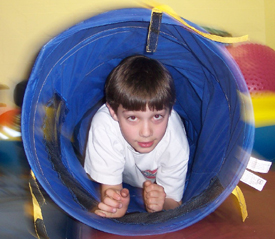
|
Pediatric Occupational, Physical, ABA/Behavioral, Feeding, Speech, and Language Therapies Main Clinic: 931-372-2567 1445 East 10th Street Cookeville, TN 38501 Email: [email protected] HIPAA Secure Email: [email protected] Fax: (931) 372-2572 ABA Clinic: 931-201-9534 400 Dubois Road Cookeville, TN 38501 Email: [email protected] Please call today to get started! Most insurances accepted! |

|
| Who needs therapy? | SE HABLA ESPAÑOL |
Diet Therapy
Diet Therapy for Attention Deficit Hyperactivity Disorder Gains Support by Doctors, Researchers and Parents
An increasing body of evidence supports diet as an effective treatment for ADD and ADHD. The most common behaviors exhibited by those who have ADHD are inattention, hyperactivity and impulsivity.
Signs of inattention include:
· Becoming easily distracted by irrelevant sights and sounds
· Failing to pay attention to details and making careless mistakes
· Rarely following instructions carefully and completely
· Losing or forgetting things like toys, or pencils, books, and tools needed for a task
· Avoiding tasks that require sustained mental effort
Signs of hyperactivity and impulsivity include:
· Feeling restless, often fidgeting with hands or feet, or squirming
· Running, climbing, or leaving a seat, in situations where sitting or quiet behavior is expected
· Acting as if driven by a motor
· Blurting out answers before hearing the whole question
· Having difficulty waiting in line or for a turn
Actually, many of us possess some of these behaviors and it does not necessarily mean that the ADHD diagnosis would be correct. However, nearly four million children in this country are affected. Three million have been prescribed amphetamine-like drugs, such as Ritalin.
Many of them can be helped by simply avoiding eating certain food chemicals. According to immunologist Robert Sinaiko, MD, “The research connecting diet and behavior often goes unread. For two decades, the scientific literature and parents have noted that certain synthetic, petroleum-based food additives act like drugs on certain children, impairing learning and triggering symptoms which look exactly like ADD and ADHD. Dr. Sinaiko cites a number of studies based on double-blind, placebo-controlled food challenges published in major scientific journals such as Science and the Lancet. “These and others prove that learning or behavior in certain children is significantly impaired for several hours following the ingesting of artificial food colors”.
Diet is by far the least expensive alternative. It also is risk-free. If diet is not sufficient, a parent can then explore other options. Parents and physicians need to know that diet therapy is another option for treating behavior and attention problems.
It is important to recognize that this information may be helpful to you, however, it is not intended to substitute for professional medical advice. It may be useful to discuss ideas with your child’s doctor, but the information is not intended to substitute for his/her recommendations.
Beryl Turner, Nutritionist
Site empowered by
WebOnTheFly